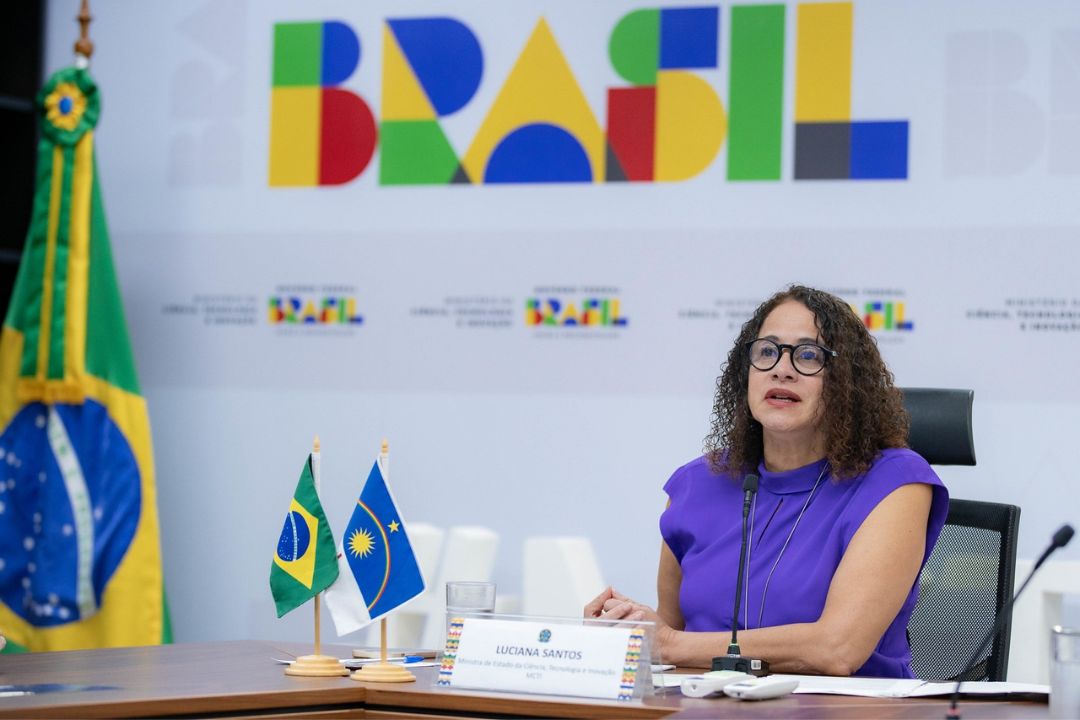
By Luciana Santos*
The sovereignty of nations is directly related to technological dominance. Therefore, outlining development strategies is fundamental for a country like Brazil, which has an abundance of natural resources, installed capacity and strong human intelligence capital. What is necessary, in fact, is to make the appropriate investments, including investment in international partnerships and cooperation that are advantageous for Brazil.
In the context of international partnerships and cooperation between Brazil and Nova Indústria Brasil (NIB), China emerges as a strategic partner. This is because the two countries share several common interests and also because they have great examples that Sino-Brazilian cooperation is, in fact, effective and mutually beneficial: the Sino-Brazilian Earth Resources Satellite Program, CBERS.
This is one of the most successful South-South cooperations in the country, whether due to its individual results or the strengthening of the Brazil-China relationship. Six satellites have already been developed and the two countries are already working together on the seventh, CBERS-6, with investments of around R$250 million. The aim is to move quickly towards the eighth Sino-Brazilian satellite, CBERS-5, which will be a geostationary meteorological satellite and will represent a major technological advance for Brazil.
It is important to highlight that the space area, in particular, has a profile focused on international cooperation. Exploring the frontier of knowledge of the world around us and beyond requires a strong relationship of mutual trust and exchange of experiences, information and good practices. This is what the Sino-Brazilian relationship has been like in this strategic sector for almost 40 years.
MCTI, through the FNDCT, has increased investments in research infrastructures and one example is the BINGO Radio Telescope. This is another major bilateral research infrastructure and will be the only radio telescope in the world that proposes to map atomic hydrogen as traced by the 21cm line at large angular scales. The project’s objectives are to understand the dark sector of the Universe and develop instrumentation technology for observational cosmology and astrophysics. The radio telescope structure is being manufactured in China and we expect to complete the assembly of this important infrastructure in 2024.
At the end of July, MCTI launched the Brazilian Artificial Intelligence Plan (PBIA) which seeks, among others, to promote Brazil’s global protagonism in AI through national technological development and strategic international collaboration actions. In this context, the MCTI already has a common plan and should initiate joint actions in AI with the Ministry of Industry and Information and Communication Technologies of China (MIIT). It is also intended to advance on a new front of AI development with the Chinese Ministry of Science and Technology (MOST).
In the broad area of digital transformation, MCTI and MIIT established a joint work plan that includes, in addition to AI, high-performance computing, semiconductors, quantum technologies and other technologies. These are strategic areas for development
of both countries.
It is intended to resume, by 2025, the Brazil-China Innovation Dialogue. The Dialogue aims to promote the exchange of policies and learn about China’s innovation ecosystem, in addition to promoting exchanges between researchers from technology-based companies, exchanges of startups and technology parks and good practices. It is also necessary to resume the China-Brazil Nanotechnology Innovation Center. This Center progressed well, with good research and development results until 2018, but was discontinued. This cooperation has a strong concentration of innovations in an area that is strategic for both countries, because it includes the topic of advanced materials.
Current development strategies around the world, including Brazil, have the energy transition in common. At this point, MCTI intends to work with MIIT on research and development for the photovoltaic industry. A country like Brazil, abundant in sunshine (free energy), needs to take advantage of this wealth for the benefit of its industry. And China will also be a great partner in developing innovations for the photovoltaic industry.
It is necessary to mention the important cooperation between the Federal University of Rio de Janeiro (UFRJ) and Tsinghua University, which established the China-Brazil Center for Climate Change and Innovative Technologies for Energy in 2010. This Center has been supported by MCTI since its inception. beginning and is in an expansion phase, with projects in the areas of sustainable development and initiatives focused on topics such as pollution control, climate change, renewable energy, biofuels, water resources, energy efficiency, nuclear energy, deep water technologies for exploration oil and gas, bioeconomy, forests and climate, energy planning, smart cities, mobility, petroleum engineering, industrial safety, technology transfer, innovation and entrepreneurship, training programs, among others.
In the coming months, the Sino-Brazilian Center for Innovation in Solid State Lighting should be established, which will operate at CTI Renato Archer, a research unit at MCTI. This is an applied research cooperation in the area of photonics and energy, including smart lighting, agricultural lighting, among others. It will be an important cooperation for Brazil, because photonics can be applied to several areas, including telecommunications, agribusiness and health.
The MCTI and its research units will also engage in cooperation with the Chinese Academy of Sciences, which has a structure that also has research units. We intend to establish broad cooperation in 15 areas of knowledge.
Sino-Brazilian cooperation in ST&I has an inspiring history and enormous potential for collaboration, and it may be impossible for us to explore all the capabilities of these two great countries. For now, we remain engaged in several joint actions towards the development of both nations, so that we can reap, in the near future, the good fruits that Brazilian and Chinese science have to offer the world. The outlook for the next 50 years is one of joint development of strategic technologies that will lead Brazil and China to become global protagonists.
* Luciana Santos is an electrical engineer, politician and Minister of Science, Technology and Innovation in Brazil.
This text was originally published in China Hoje magazine. Click here, sign up to our community, receive a free digital subscription and access the full content.
Source: https://www.chinahoje.net/brasil-china-50-anos-depois-com-olhos-nas-fronteiras-da-ciencia/

